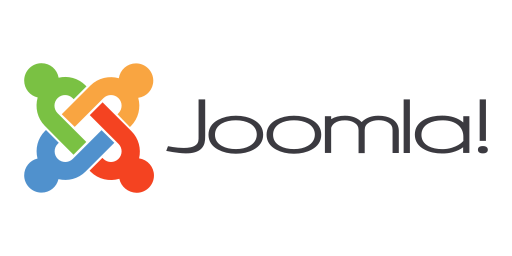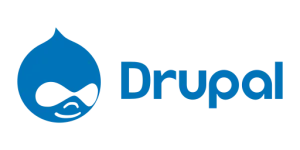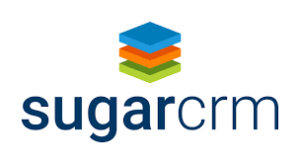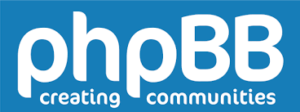Welcome to HostPip
Blazing-Fast Web Hosting for Peak Performance
Deliver an unbeatable online experience with ultra-speed, reliability, and power designed to boost your website’s performance!
Get Started
Starting at only
$4.75/mo*
$4.75/mo*

Basic
An affordable hosting option for starter sites. Ideal for up to a dozen small websites.
Managed WordPress Hosting
Managed WordPress Hosting
100 GB SSD storage
Hostinger Website Builder
Free domain (US$ 9.99 value)
Free automatic website migration
Free email
Unlimited free SSL
Free CDN
Starter WooCommerce
Weekly backups
Dedicated IP address
Priority support
$5
/month
Order NowIntermediate
When you need more than Shared Hosting, but not quite a complete VPS.
Managed WordPress Hosting
Managed WordPress Hosting
100 GB SSD storage
Hostinger Website Builder
Free domain (US$ 9.99 value)
Free automatic website migration
Free email
Unlimited free SSL
Free CDN
Starter WooCommerce
Weekly backups
Dedicated IP address
Priority support
$19
/month
Order NowAdvanced
Did you know we were the first to offer VPS Hosting in Europe back in 2004?
Managed WordPress Hosting
Managed WordPress Hosting
100 GB SSD storage
Hostinger Website Builder
Free domain (US$ 9.99 value)
Free automatic website migration
Free email
Unlimited free SSL
Free CDN
Starter WooCommerce
Weekly backups
Dedicated IP address
Priority support
$35
/month
Order NowEnterprise
For when downtime is simply not an option. Built for the most demanding websites and applications.
Secure & Reliable Hosting You Can Trust
Rest easy with HostPip’s robust security features. From free SSL certificates to daily backups and advanced firewalls, we’ve got your website protected. Our hosting is designed to keep your site secure and running smoothly 24/7.
Crafted by Web Experts. Perfect for Everyone!
At HostPip, our website builder is crafted by web experts who understand the intricacies of online presence. We've designed it to be user-friendly and accessible for everyone, regardless of their technical background. Whether you're a small business owner, a creative professional, or just starting your online journey, our intuitive tools empower you to create a stunning website that reflects your brand. Join us and experience the perfect blend of professional design and ease of use!

One-click installs so you can build happy.








99.9% Uptime Guarantee – Stay Online, Always
Downtime is bad for business. That’s why we promise a 99.9% uptime guarantee, keeping your site accessible and online when it matters most. HostPip’s reliable infrastructure ensures you’re always open for visitors.


Flexible Hosting Plans to Fit Any Need
From small blogs to large e-commerce stores, HostPip offers flexible hosting plans to match your needs. Whether you’re just starting or growing fast, we have the right solution for you – all with unbeatable performance and value.
Free Domain & Easy-to-Use Control Panel
Kick off your web hosting journey with a free domain and an intuitive control panel that makes managing your hosting a breeze. Easily monitor your resources, install apps, and make changes without any technical hassle.

Got questions?
Well, we've got answers.
Web hosting is a service that allows individuals and businesses to make their websites accessible over the internet. Hosting providers allocate space on a server for your website’s files, images, and content. When someone types your website's domain name into their browser, their computer connects to the server where your site is hosted, delivering the webpage to the user.
Consider the following factors:
Traffic Expectations: Choose based on your website's expected number of visitors. High traffic sites may require higher resouces.
Technical Requirements: Websites requiring specific software or custom configurations.
Support and Features: Ensure the host provides features like backups, security, uptime guarantees, and customer support.
Traffic Expectations: Choose based on your website's expected number of visitors. High traffic sites may require higher resouces.
Technical Requirements: Websites requiring specific software or custom configurations.
Support and Features: Ensure the host provides features like backups, security, uptime guarantees, and customer support.
Uptime is the percentage of time a server is operational and your website is accessible. HostPip offer 99.9% uptime guarantees. Downtime occurs when the server is under maintenance or experiences technical issues, and it can negatively affect your website’s traffic and credibility. HostPip focus on minimizing downtime through robust infrastructure and redundant systems.
A domain name is your website's address on the internet (e.g., www.example.com). It's what users type into their browser to reach your site. Domain names must be registered through a registrar and are mapped to your web hosting server through DNS (Domain Name System). While the domain is your website’s address, hosting provides the "space" where your website resides.
Yes, HostPip allow you to upgrade or downgrade based on your website’s growth. If your traffic increases, you may need to switch to highter plan for better performance. Likewise, you can downgrade if you no longer need advanced features.
Key security features include:
SSL Certificate: Encrypts data between the server and users’ browsers.
Firewalls: Protect servers from unauthorized access and attacks.
Automated Backups: Ensures data recovery in case of corruption or loss.
DDoS Protection: Shields your site from Distributed Denial of Service attacks.
Malware Scanning: Regular checks for malware and vulnerabilities.
Strong security measures are essential to safeguard your site from hackers and data breaches.
SSL Certificate: Encrypts data between the server and users’ browsers.
Firewalls: Protect servers from unauthorized access and attacks.
Automated Backups: Ensures data recovery in case of corruption or loss.
DDoS Protection: Shields your site from Distributed Denial of Service attacks.
Malware Scanning: Regular checks for malware and vulnerabilities.
Strong security measures are essential to safeguard your site from hackers and data breaches.
Web hosting provides the infrastructure (servers, storage) to host your site. A website builder is a tool or platform that allows you to design and build a website without coding. Website builders often come with hosting included, but web hosting can be used with any CMS (like WordPress) for more flexibility.
An SSL certificate encrypts data between your website and its visitors. It’s essential for security, especially if you handle sensitive information (e.g., payments, personal data). SSL also improves your SEO ranking, and browsers mark sites without SSL as "Not Secure." HostPip offer free SSL certificates through Let's Encrypt.
Yes, Our hosting plans allow you to host multiple websites under one account. Look for plans that offer add-on domains or unlimited domains. Make sure to consider the resources usage, as multiple websites can consume the full allocated resources.
Speed & Performance: Fast loading times and reliable uptime (99.9%+).
Security: SSL, DDoS protection, backups, firewalls.
Support: 24/7 customer support and responsive troubleshooting.
Ease of Use: A user-friendly control panel like cPanel.
Scalability: Ability to upgrade resources as your site grows.
Price: Affordable pricing with good value for features offered.
Security: SSL, DDoS protection, backups, firewalls.
Support: 24/7 customer support and responsive troubleshooting.
Ease of Use: A user-friendly control panel like cPanel.
Scalability: Ability to upgrade resources as your site grows.
Price: Affordable pricing with good value for features offered.
Why Hostpip?
Still Have a Question?
24/7/365 support. We work when you work.
Sign Up For Web Hosting!
Build Your Online Presence With Fast, Secure & Reliable Hosting


